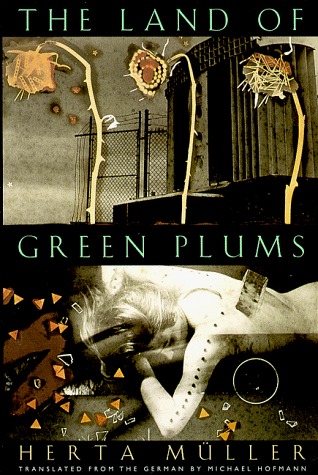The Land of Green Plums begins with a song: ‘everyone had a friend in every wisp of cloud / that’s how it is with friends where the world is full of fear / even my mother said, that’s how it is / friends are out of the question / think of more serious things.’ So when I say the novel is about four friends, I use the word delicately. The story is told by a young woman who belongs to the ethnic German minority in Ceauşescu-ruled Romania. Like her friends, she escaped the cultural oppression of her village only to be persecuted by the totalitarian regime. The four come together when one of their classmates hangs herself.
The Land of Green Plums stunned me when I read it. I could list any number of reasons: the perfection of its language, the political significance, the heft of the characters’ living, to borrow a phrase from Adrienne Rich. However, if I were to name one reason I’m so in awe of this book, it’s the way the writing works through trauma.

The sentence structure resembles, at times, a logical proof. Take this passage: ‘The words in our mouths do as much damage as our feet on the grass. But so do our silences. Edgar was silent.’
If we assume words = damage, and silence = damage, and Edgar = silent, then Edgar is also indicted. Something turns in the space between paragraphs, as in the pause that precedes ‘Edgar was silent.’ Here’s another example:
‘The grass stands tall inside our heads. When we speak it gets mowed. Even when we don’t . . .
And even so: We are the lucky ones.
Lola came from the south of the country, and she reeked of poor province.’
We’re left with a stuttering anticipation of what will become of Lola. Lola who cannot – by the condemning silence of that section break – be a lucky one. As the narrator works through trauma, the sentence construction, its logic, the accumulation of named things and the weight of what’s left silent, give her and the reader something to hold onto – a guide rope that leads us from one end of the book to the other. This is a novel that very few people could write. I really think you’d have to have lived through that bleakness. You’d have to know with your body, your hands, your eyes, your mouth, the weight of that fear – how it’s not strictly describable.







